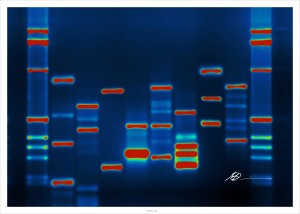TUESDAY, 21 FEBRUARY 2012
According to the study, DNA analysis can be subjective and inconsistent, even among experts in the field. The paper suggests that a forensic scientist’s personal background and knowledge of the crime may bias their interpretation of data.In this study, Dr. Itiel Dror, a cognitive psychologist at University College, London, and Dr. Greg Hampikian, a forensic biologist at Boise State University, compared results from two groups of DNA analysts. The first group comprised two DNA analysts who had been involved in the trial of a group of individuals accused of gang rape. The second group comprised 17 DNA analysts who were given the same data later, but were not given background contextual information.
The authors found that the two groups of analysts did not always agree. In the actual case, the DNA analysts had determined that one of the three assailants who pleaded innocent could not be excluded from consideration as the culprit, based on the results of forensic tests. However, only one of the analysts in the second group arrived at the same conclusion using the same test results. Twelve analysts acquitted the assailant, while the remaining four determined that the data were inconclusive.
Although this is just one small investigation, and much more work is needed, the field of forensic science may now be forced to reconsider the existence of bias in data interpretation. The findings from this study may suggest that DNA evidence may not be the incontrovertible proof it is commonly believed to be. It seems certain that this paper will be cited frequently in the courts as an argument against genetic evidence.
Written by Leila Haghighat
doi: 10.1016/j.scijus.2011.08.004

